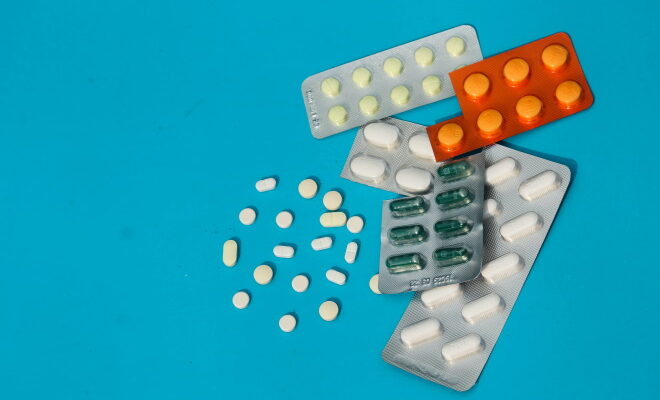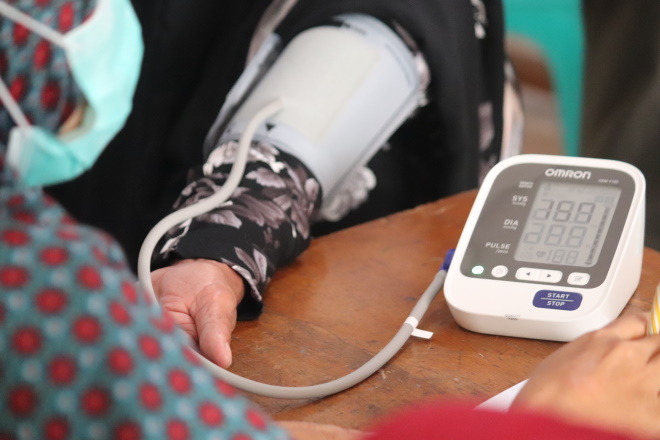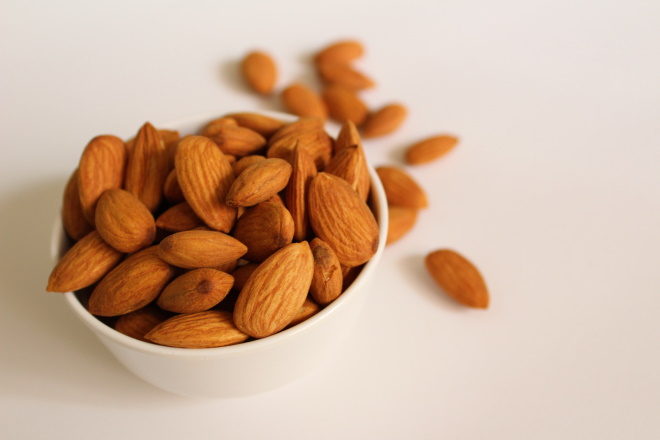
Health x Wellness
Can we wish away high cholesterol with only medication?
A high cholesterol level is a major risk factor for heart disease and plays a significant role in the development of atherosclerotic disease. We find out whether medication alone is sufficient in dealing with the condition.
The Singapore Heart Foundation (SHF) has selected high cholesterol as the highlight for National Heart Week/World Heart Day 2022.
In 2019, high cholesterol was the second most common risk factor of heart attacks in Singapore, after high blood pressure. People above 40 – 50 years old develop high cholesterol because of environmental factors and typically develop heart disease by the age of 70.
A survey in 2020 showed that one in three Singapore residents aged 70 to 74 have high blood cholesterol compared to one in six adults in the 18 to 29 years age group.
We discussed the topic of high cholesterol and whether medication is a more effective management tool than lifestyle changes with Prof Tan Huay Cheem, Chairman, Singapore Heart Foundation Senior Consultant, National University Heart Centre, Singapore.
the Active Age (AA): What is high blood cholesterol?
Prof Tan Huay Cheem (THC): Cholesterol is a waxy, fatty substance found in the cell walls of various organs in our body, from the nervous system to the liver to the heart. Our body uses cholesterol to make hormones, bile acids, vitamin D and other substances.
The liver produces most of the cholesterol found in the body; the rest of the cholesterol comes from the food we eat.
There are 2 types of cholesterol: HDL (good) and LDL (bad). Low density lipoprotein (LDL) contributes to fatty build-up in the arteries to form plaques, causing blood vessels to narrow and harden, thus increasing the risk of heart disease and stroke. High density lipoprotein (HDL) carries LDL (bad) cholesterol from the arteries and tissues to the liver for removal from the body.
High blood cholesterol occurs when your levels of total cholesterol or LDL cholesterol are too high, while HDL cholesterol is abnormally low.
The prevalence of high blood cholesterol in our population has increased significantly in the last ten years, from 25.2 percent in 2010 to 39.1 percent in 2020. The high incidence rate is worrying as high blood cholesterol is a major risk factor for cardiovascular disease, which accounts for about 30 percent of all deaths in Singapore every year. It is also a silent killer as it usually does not present symptoms until a heart attack or stroke strikes.
AA: How does someone get high blood cholesterol?
THC: When it comes to high blood cholesterol, various factors can contribute to it.
Genetics. Some may have inherited high blood cholesterol, a condition known as Familial hypercholesterolemia that is passed down in their genes through families. Worldwide, 1 in 250 people has FH. This means that approximately 20,000 people are affected in Singapore.
Unhealthy lifestyle. Others may acquire high blood cholesterol through lifestyle factors such as a high-fat, high-sugar diet, overweight/obesity, physical inactivity, smoking and excessive alcohol consumption. According to the National Population Health Survey, while the prevalence of regular drinking has remained low at 2 percent, and daily smoking has declined over the years, the proportion of people who engaged in sufficient total physical activity has declined.
A high-fat diet. According to the 2018 National Nutrition Survey (NNS), there has been a rise in Singaporeans’ fat intake from 28 percent in 2004 to 35 percent in 2018. This is a cause for concern, as fat is calorie-dense, and any increase in fat intake may result in weight gain and obesity.
Saturated fat, which is unhealthy, has decreased from 38 percent to 36 percent of total fat consumed while daily trans fat intake halved from 2.1g to 1.0g over the same period. Though the situation has improved, fat consumption is still much higher than HPB’s recommendation.
HPB recommends for less than 10 percent of total fat intake be from saturated fat, while trans fat intake to be less than 2g per day and the lesser, the better.
A high sugar diet. The average daily sugar intake per person has increased slightly from 59g in 2010 to 60g in 2018, more than the WHO recommended upper limit of 50g (or 10 teaspoons) per day. Sugar from food such as confectionary, desserts and sauces has increased, making up 70 percent of the total sugar from food. Excessive sugar can lower HDL good cholesterol and contribute to high triglyceride levels.
A low fibre diet. An average Singaporean consumes 13g of dietary fibre per day. The recommended amount is 30g per day. Refined carbohydrates remain high at 83 percent. Fibre, specifically soluble fibre, binds to cholesterol in the intestine and transports them out of the body, helping to lower LDL (bad) cholesterol levels.
AA: Why does the prevalence of high cholesterol increase with age? Or are younger persons also at risk of developing high blood cholesterol?
THC: High blood cholesterol can happen to anyone at any age, with its prevalence increasing, from around one in six between 18 and 29 years old to two in three between 70 and 74 years old.
Ageing can cause blood cholesterol levels to be raised because the liver is less able to remove the bad cholesterol from the body.
AA: When should someone with high cholesterol seek a doctor’s consultation?
THC: You should seek a doctor’s consultation when your LDL cholesterol level is higher than 160mg/dL (4.1 mmol/L).

Should your doctor consider you to be at moderate risk for heart attacks because of your concurrent risk factors such as diabetes mellitus, hypertension, kidney disease etc; or if you already have established cardiovascular disease, he will prescribe you medicines, which you should not resist taking.
These medicines can lower your chance of heart attack by 30 percent to 40 percent and are safe with a low incidence of short- or long-term side effects. They are literally lifesaving medicines.
Most guidelines would recommend that cholesterol-lowering therapies be started in the following 4 groups of people:
- Established atherosclerotic cardiovascular disease (ASCVD) – that is the person has pre-existing blockages of the coronary (heart), cerebral (brain) or any arteries in the body circulatory system
- Diabetes mellitus, especially those with a prolonged duration of more than 10 years
- LDL cholesterol level of >190 mg/dL (4.9 mmol/L)
- People with no established cardiovascular disease but have multiple risk factors that increase their chances of developing the condition in future.
In addition, if you have higher risk features such as strong family history, smoking history, obesity, diabetes mellitus or hypertension. Your doctor may want to check your blood cholesterol level more regularly and be more aggressive in treatment.
AA: What are some of the lifestyle changes one can do to prevent or manage their high cholesterol?
THC: In general, a balanced diet, incorporating an active lifestyle, maintaining a healthy BMI (18.5-22.9kg/m2), quitting smoking and drinking alcohol in moderation helps manage our cholesterol levels.
Reduce consumption of bad fats (saturated fat and trans fat), e.g., baked products such as cakes, cookies and pastries.
- Choose lean or plant-based proteins over fatty cuts and processed meats (e.g., chicken breast, fish, egg, tofu, beans and peas)
- Cook with healthier oils (e.g., canola, sunflower, olive and corn oil)
- Choose reduced or low-fat dairy products over full fat ones (e.g., low-fat milk, yoghurt, cheese)
- Limit consumption of baked and deep-fried foods
- Choose healthier cooking methods to reduce use of oil (e.g., grill, steam or pan-fry)
- Consume good fats (monounsaturated fat and polyunsaturated fat) in moderation
- Replace butter and margarine with fresh avocado, 100% unsalted nut butter or small dip of extra virgin olive oil
Increase Fibre Intake. Fibre, specifically soluble fibre binds to cholesterol in the intestine and transports them out of the body, helping to lower LDL (bad) cholesterol levels.
The recommended daily servings of fibre will include:
- 2 to 3 servings of whole-grains (oats, millet, brown rice, quinoa)
- 2 servings of fruit and 2 servings of vegetables
- A handful (~28g) of unsalted baked or roasted nuts (e.g., almonds, hazelnuts and pistachios)

Limit cholesterol intake. While dietary cholesterol is not as problematic for most people as once believed, limiting the amount you eat remains important, as many foods rich in cholesterol also tend to contain more saturated fats.
For individuals with diabetes, high blood cholesterol or heart failure risk, it is best to practice caution as they may be more sensitive to changes in blood cholesterol levels than others. Do consult your family physician, who will be able to advise on your cholesterol intake based on your health condition.
Food sources high in dietary cholesterol include organ meats (e.g., liver, kidney, brain, innards), shellfish (e.g., squid), seafood (e.g., oyster), egg yolks, whole milk dairy products including cream, butter and cheese.
AA: Is medication the only way to deal with high blood cholesterol?
THC: Dietary cholesterol and fat restriction can at best lower blood cholesterol by up to 20 percent.
The rest of your blood cholesterol (80 percent) comes from your own body production in the liver. Therefore, it is not surprising that to lower cholesterol to target levels, one will have to rely on a combination of lifestyle changes and medications.
It is also important to note that lifestyle changes should not be viewed as an alternative therapy to medicines, and likewise, we cannot rely on medications alone to manage high cholesterol effectively without making lifestyle changes.
One will still need to stay away from a diet that is high in saturated fat, trans fats and cholesterol and stick with a heart-healthy diet.

In addition, patients with high blood cholesterol should also incorporate the following healthy lifestyle habits:
Exercise Regularly. Aim for 150 – 300 minutes of moderate-intensity aerobic physical activity each week. Incorporate muscle and bone strengthening activities (e.g., weight training, Pilates, body weight calisthenics) at least 2 times per week.
Regular physical activity may increase HDL modestly and contribute to the reduction of LDL cholesterol and triglycerides.
It is advised for people with abnormally high cholesterol levels to engage in regular moderate-intensity exercise for more than 30 min/day, even if they are not overweight. This is for enhancement of their overall health and to improve the control of other concurrent cardiovascular risk factors such as high blood pressure and diabetes mellitus.
Reduce alcohol intake. Alcohol is high in calories and sugar and has a potent effect on triglycerides. If you drink, do so in moderation. Have no more than one standard drink a day for women and two drinks a day for men.
A standard drink refers to: ⅔ can (220ml) of beer/One small glass (100ml) of wine/One glass (30ml) of spirit.
LDL-C levels can be lowered by 10 percent to 20 percent after three to six months of diet and exercise modification. Coupled with medications, the reduction may be observed earlier at 2 months.
AA: How can family members help if a loved one has been diagnosed with high blood cholesterol?
THC: Should a family member be diagnosed with high cholesterol, particularly of the familial hypercholesterolemia type, the rest of family members should consider a blood test to make sure that they do not have the same inherited condition.
It is also important that family members support the patient through collective action, i.e., exercise with them, eat/cook healthy together.
Encouraging the patient to be regular and compliant with their medicines should it be prescribed by doctor, is also very helpful.
Under the MOH screening guidelines, it is recommended for men and women aged 40 years and older to routinely screen for lipid disorders.
Photos by Mockupo, by Tamanna Rumee, by Mufid Majnun andby Jannis Brandt on Unsplash






